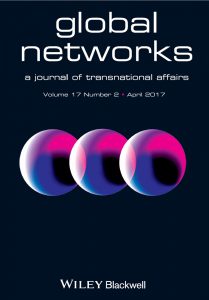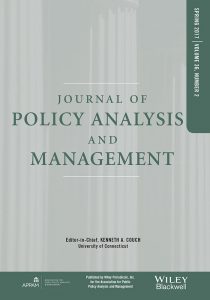Excellent Teaching…
Bill Gates’ address to the National Governor’s Association last month was an ode to excellent teaching. Except that it wasn’t.
What we have to do, Gates chirped (to the tune of former DC Public Schools Chancellor Michelle Rhee), is “measure, develop, and reward excellent teaching…We have to identify great teachers, find out what makes them so effective, and transfer those skills to others.”
But excellent teaching –as sociologists Lori Dance (2002) and Sarah Lawrence-Lightfoot (1984) have shown through their research, and as engaged students and teachers everywhere have long known and felt–excellent teaching is about deeply human and humanizing relationships. Excellent teaching is about knowing students as people, knowing where they are when they enter the classroom.
In her classic The Good High School, Harvard Distinguished Professor Lawrence-Lightfoot studies urban and suburban, public and private, privileged and underfunded high schools around the Northeast and Midwest and finds that the one recurrent quality of good teachers is that the good teacher knows his or her students and is engaged in an ongoing practice of reflecting on each student and the students’ needs and acting to try to meet those needs. The good teachers, Lawrence-Lightfoot finds, never stop asking self-critical, self-reflexive questions about their practices in the context of student needs.
Lori Dance’s Tough Fronts, an ethnographic study of Black adolescent boys from low-income communities articulates similar insights. The boys’ most frequent lament about school, Dance observes, is the short supply of teachers who believe in their ability to excel in school – and who show that belief through their willingness to act as mentors and friends, their constant show of (tough! not gushy) empathy and caring, their recognition of the pressures the boys face, and their ability to call students’ bluffs on “hard” postures. The students with whom Dance works are full of praise and ready to learn from and put forth effort for the teachers who are sensitive their needs both in school and out. In other words, the teachers who know students – and who show every day that they want to know students – are the teachers whom students acknowledge to have made a crucial difference in their lives.
Students’ understandings of themselves as students are inevitably shaped by the experiences that they have in school. If teachers and administrators relate to them as test scores, then their ideas about what they can achieve and how they can achieve it will be limited to achievement as pre-defined by the test. As a learning specialist at one “high-achieving” in education scholars’ Linda Valli and Robert Croninger’s (2009) study Test Driven confesses: “I don’t always know them by face, but I know them by data.” Compare that with findings the State of North Carolina and Duke University’s Project Bright Idea: treating every student as a “gifted” student makes students perform like gifted students. The good teachers are the ones who have taken the time to understand what it takes to help students want to share and develop their gifts in the classroom.
Gates has conflated measuring with understanding. And he’s not alone. Michelle Rhee gained fame for talking this talk and walking this walk. And the District of Columbia’s new Chancellor Kaya Henderson, is not entirely willing to concede the relationship between good teaching and the number of students with whom a teacher needs to work to develop relationships (aka “class size”). It would make measuring and transferring the skills of “effective” teachers so much easier if it didn’t.
Taking real humans and real human relationships out of a process is always going to crank out efficient, predictable, calculable, controlled “results” (see McDonalds). But alas teacher-student relationships are not efficient, predictable, calculable or controllable. They can’t be transferred from one technician to another because what makes those relationships “good” and “effective” is not a static, moveable quality. The goodness comes from a relationships sustained by on-going engagement, self-reflexive questioning, and willingness to be for and work with another. Another human being.
 Efficiency, Predictability, Calculability, and Control: George Ritzer’s McDonaldization
Efficiency, Predictability, Calculability, and Control: George Ritzer’s McDonaldization






1530-2415/asset/SPSSI_logo_small.jpg?v=1&s=703d32c0889a30426e5264b94ce9ad387c90c2e0)

there was a line in a recent nytimes article: “There is a quiet but fierce battle going on in education today, between the unions that represent the public school teachers and the hedge-fund managers who finance the big charter chains, between those who trust teachers to assess a child’s progress and those who trust standardized tests, and occasionally it flares out into the open over something as seemingly minor as the location of a school.”
This reality makes it difficult for me to believe that different educational philosophies or sincere differences in understanding are driving school reform. On one hand, Gates and his supporters have managed to offer fairly simple solutions and simple obstacles for education. Simple ideas usually win. However, Gates and Rhee etc., have also been very effective in silencing critics and especially keeping them out of power.
Charter schools, standardized testing and the ultimate goal behind much of the “school reform” – union busting – seems less driven by ideology and more by political and economic interests. I think the role of power is essential to understanding the education debate. A great deal of power is necessary to define “reform” as only your side and have virtually every media outlet repeat this framing casting anyone who questions you as opponents of reform.
Bill Gates is an Idiot
Bill Gates should stick to what he does best: selling crappy software. As an education analyst he is a fish out of water. In response to the news that education budgets are being slashed all across the US, Bill Gates put forward an argument (“How Teacher Development Could Revolutionize Our Schools,” Washington Post, 2/28/11) in which he suggests that the US is actually spending more on education. Wow, Bill, I guess that’s the kind of acuity that helped build Microsoft into the world’s greatest knock-off software company.
Appropriate expertise matters: Software experts (such as they are) should run software companies. The more we rely on software experts to design educational policy, the greater the chance that we’ll end up with Microsoft Vista-version of schooling.